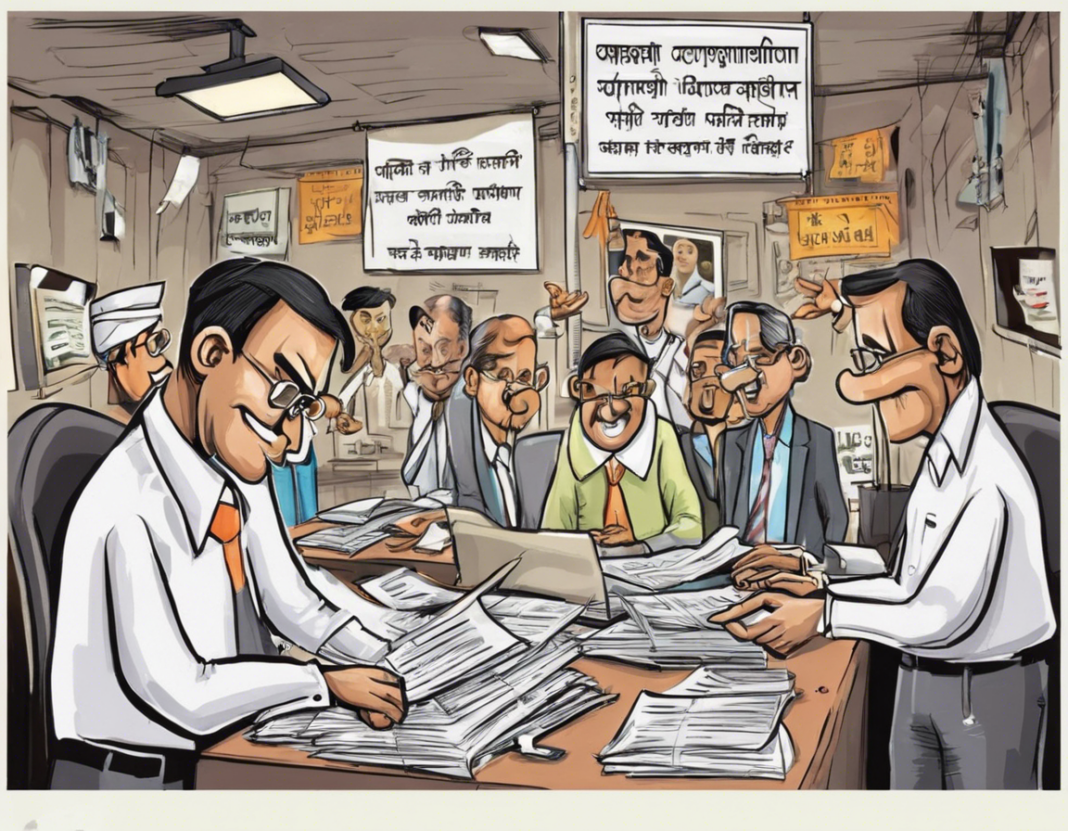Introduction
Corruption has plagued India for many decades, hindering its development and progress. It impacts all aspects of life, from politics and business to everyday interactions with government officials. However, in recent years, there has been a growing movement towards achieving a corruption-free India. This article explores the impact of corruption on the country’s development, the measures taken to combat it, and the way forward towards a brighter, more transparent future.
The Impact of Corruption on Development
Corruption has severe implications for a country’s development. It distorts economic growth, undermines the rule of law, and erodes public trust in institutions. In India, corruption has been a major roadblock to progress, leading to inefficiency, inequality, and a lack of accountability. It deters foreign investment, stifles innovation, and perpetuates poverty. To foster development, it is crucial to address this pervasive issue.
Economic Consequences of Corruption
One of the most significant impacts of corruption is on the economy. Corruption diverts resources away from essential services and infrastructure projects, leading to substandard quality and inflated costs. It creates a culture of cronyism and favoritism, where bribes are the norm for business dealings. This not only hampers economic growth but also widens the gap between the rich and the poor.
Social and Political Ramifications
Corruption undermines the social fabric of society by breeding a sense of injustice and inequality. It perpetuates a cycle of poverty by denying resources to those who need them most. Politically, it weakens democratic institutions and fosters a culture of impunity among those in power. It erodes public trust in the government and undermines the rule of law.
Measures to Combat Corruption
In recent years, there have been concerted efforts to tackle corruption in India. Various anti-corruption laws and agencies have been established to hold accountable those who engage in corrupt practices. Public awareness campaigns and citizen engagement initiatives have also been instrumental in combating corruption at all levels of society.
Legal Reforms
One of the key measures to combat corruption is through legal reforms. The Prevention of Corruption Act and the establishment of anti-corruption bodies like the Central Vigilance Commission and the Central Bureau of Investigation have been crucial in prosecuting corrupt officials and holding them accountable for their actions. These legal mechanisms serve as a deterrent to those tempted to engage in corrupt practices.
Transparency and Accountability
Transparency and accountability are essential in the fight against corruption. Whistleblower protection laws empower individuals to come forward and report instances of corruption without fear of retaliation. Implementing open data initiatives and e-governance systems can also help reduce opportunities for corruption by making government processes more transparent and accessible to the public.
Strengthening Institutions
Building strong institutions is key to eradicating corruption from the system. Effective oversight mechanisms, independent judiciary, and robust internal controls can help prevent corruption and ensure that those who engage in corrupt practices are held accountable. Investing in the capacity and integrity of public institutions is vital in creating a culture of transparency and accountability.
The Way Forward
While significant progress has been made in combating corruption in India, there is still a long way to go. Sustainable development requires a concerted effort from all sectors of society to root out corruption and foster a culture of integrity and transparency. Strengthening anti-corruption laws, enhancing transparency in government operations, and promoting ethical leadership are crucial steps towards achieving a corruption-free India.
Public Participation
Empowering citizens to actively participate in governance processes is essential for combating corruption. Citizen oversight mechanisms, such as social audits and grievance redressal mechanisms, can help hold public officials accountable and ensure that resources are used effectively and transparently. By involving the public in decision-making processes, the government can enhance transparency and reduce the risk of corruption.
Embracing Technology
Technology can be a powerful tool in the fight against corruption. Implementing e-governance systems, digital payment platforms, and online services can streamline government processes and reduce opportunities for corrupt practices. Blockchain technology, for instance, can enhance the transparency and security of transactions, making it harder for corrupt officials to engage in fraudulent activities.
Integrity in Leadership
Ethical leadership is crucial in fostering a culture of integrity and transparency. Political leaders and government officials must lead by example and adhere to high ethical standards in their conduct. Creating a code of conduct for public officials, enforcing strict disciplinary measures for those found guilty of corruption, and promoting a culture of accountability can help build public trust and confidence in government institutions.
Frequently Asked Questions (FAQs)
-
What is corruption, and why is it a problem in India?
Corruption is the abuse of power for personal gain, and it is a significant issue in India due to its detrimental impact on development and governance. -
How does corruption affect the economy of India?
Corruption diverts resources, distorts market mechanisms, and hampers economic growth by creating an uneven playing field for businesses. -
What anti-corruption measures has the Indian government taken?
The Indian government has implemented various anti-corruption laws, established specialized agencies, and promoted transparency and accountability in governance. -
How can citizens help combat corruption in India?
Citizens can contribute to the fight against corruption by reporting instances of corruption, participating in social audits, and holding public officials accountable. -
What role does technology play in tackling corruption?
Technology can enhance transparency, streamline government processes, and reduce opportunities for corrupt practices through e-governance systems and digital platforms. -
Why is ethical leadership important in combating corruption?
Ethical leadership sets a precedent for integrity and accountability in government, building public trust and confidence in institutions. -
What are the challenges in achieving a corruption-free India?
Challenges include entrenched corrupt practices, lack of political will, and the need for sustained efforts to change societal attitudes towards corruption. -
How can businesses contribute to a corruption-free India?
Businesses can promote transparency, adhere to ethical business practices, and avoid engaging in bribery or other corrupt activities. -
What role does civil society play in combating corruption?
Civil society organizations can raise awareness, advocate for anti-corruption measures, and hold governments accountable for their actions in fostering a culture of transparency and integrity. -
What are the long-term benefits of achieving a corruption-free India?
A corruption-free India can lead to sustainable development, economic prosperity, social justice, and enhanced public trust in government institutions, paving the way for a brighter future for all citizens.
In conclusion, achieving a corruption-free India is a challenging but essential goal for sustainable development and progress. By implementing stringent anti-corruption measures, enhancing transparency and accountability, fostering ethical leadership, and engaging citizens in governance processes, India can pave the way for a brighter, more prosperous future for all its citizens.






